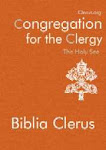WHY DO WE WITNESS TO LIFE?
We have a choice in our world. We can choose to see that the hearts and minds of humankind are cloudy and dull. We can choose to see the world suspiciously or skeptically—full of broken vows and promises. Too often, we can observe that government seems corrupt, the courts vacant of justice, and the city halls barren of hope.
We can also choose to see what is good and right in the world, and well-ordered.
In the end, what difference does it make? In our own lives, what differences do we, or can we make?
We can make a choice of hope.
We can be a witness of hope.
That is why we march this Saturday, January 19, 2008, at 1:00 p.m., from Julia Davis Park, to City Hall here in Boise, Idaho. In the midst of the cold, we witness to each other, to our community and to the world that our hearts are full of hope and that this Hope endures.
We do so because faith demands it. Reason demands it. Reason reveals to all people of good will, that the born and the unborn, the disabled and the able, have a right to live and to experience love and freedom. Faith tells us that there is hope, and hope is that transcendent virtue that turns reason to action and delivers people from despair and wrongful choices.
We witness to hope because in the affliction of the world, our witness endures and gives our neighbor good example, in this we prove our character not only in our soul but in society as well, that life in all its forms really is good and that aids others to choose rightly.
We express hope about the family table or at work. We also express it in society as we march for life in Boise and elsewhere in our Nation. As we pray and become witnesses of hope to family and friends, we realize that hope does not disappoint. [Romans 5:5]
That is why we witness to life!
Please join other Idahoans this coming Saturday, January 19, 2008, at 1:00 p.m. at Julia Davis Park, as we march to city hall for a brief program and prayers that our society will choose life.
John Keenan, OPL





.jpg)

































